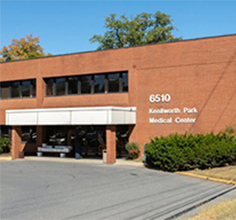
A sore throat can be an unwelcome visitor, turning simple tasks like swallowing into a painful ordeal. Most of us have experienced the discomfort, often likened to swallowing razor blades or glass shards. While these bouts of sore throat typically resolve within a few days, what happens when the pain persists or returns frequently?
In this brief article brought to you by Southern Maryland Medical Group, we'll explore the world of recurring or chronic strep throat and shed light on its causes, symptoms, diagnosis, treatment, and preventive measures.
If you’d rather consult with a licensed primary care physician, then call Southern Maryland Medical Group to schedule a flexible appointment or arrange a walk-in for as soon as possible.
Strep throat, short for streptococcal pharyngitis, is primarily caused by the Streptococcus bacteria. This bacterial infection targets the throat and tonsils, leading to inflammation, pain, and other symptoms. Common symptoms include:
Strep throat is highly contagious and spreads through respiratory droplets from coughing, sneezing, or close contact with an infected person. Proper hygiene practices, such as handwashing and covering coughs or sneezes, can help reduce transmission.
Recurring strep throat refers to multiple episodes of strep throat within a relatively short period, typically several times a year. Chronic strep throat, on the other hand, involves persistent or frequent strep throat infections that may last for an extended period.
In some cases, incomplete or inadequate treatment of an initial strep throat infection can lead to recurrence or chronicity. Exposure to family members or individuals with untreated strep throat can also increase the risk of recurrent infections.
Individuals who are carriers of group A Streptococcus bacteria in their throat or tonsils, even without symptoms, may experience recurrent or chronic strep throat infections. Moreover, Immune system factors, such as immune deficiencies or autoimmune conditions, may contribute to susceptibility to strep throat recurrence.
Diagnosing strep throat involves a throat swab or rapid strep test to detect the presence of Streptococcus bacteria. In some cases, a throat culture may be performed for confirmation, especially if initial tests are inconclusive.
Licensed primary care doctors are best qualified to accurately diagnose and treat strep throat. It's crucial to complete the full course of treatment as prescribed by your healthcare provider, even if symptoms improve, to prevent recurrence and antibiotic resistance.
Good hygiene and a healthy lifestyle can go a long way in preventing strep throat. Get in the habit of regularly washing your hands with warm water and soap, covering coughs and sneezes, and avoiding close contact with individuals who have strep throat.
Maintaining a healthy lifestyle, including a balanced diet, regular exercise, adequate rest, and managing stress, can support a robust immune system and reduce the risk of infections, including strep throat.
If you’d like to consult with licensed primary care doctors, then call Southern Maryland Medical Group to schedule an appointment today. Our team is on standby to take your call or message.
Southern Maryland Medical Group has 3 convenient locations to provide professional medical care services in the Southern Maryland area. Call or schedule an appointment with one of our locations to get medical care help.

5801 Allentown Road, Suite 400 Camp Spring, MD 20746
Phone: 301-868- 0150
Billing Inquiries: 301-552-1270
Fax: 301-868-0243

7500 Greenway Center, Dr #1200 Greenbelt, MD 20770
Phone: 301-486-7580
Billing Inquiries: 301-552-1270
Fax: 301-486-7581

6510 Kenilworth Ave, Ste 1400, Riverdale MD 20737
Phone: 301-618-0771
Billing Inquiries: 301-552-1270
Fax: 301-618-0772